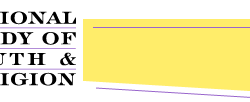|
Religious Affiliation and its Significance View printer-friendly version [PDF] Even prior to the tragic events of September 11, religion played a significant part in the lives of teens. According to the 1995 National Longitudinal Survey of Adolescent Health, 87 percent 13-18 year-olds responding to the National Longitudinal Survey of Adolescent Health claimed to be affiliated with an organized religion. Of that number, the largest block of religious youth was Catholic, at 24 percent; followed closely by Baptists at 23 percent. Church of Christ and Disciples of Christ (combined) weighed in with 9 percent, and Methodists with 6 percent. Lutherans accounted for 4 percent and Presbyterians 2 percent. Other Protestant groups followed with small minorities of the total population. Altogether, Protestant youth accounted for 44.3 percent of all American adolescents. Jewish and Buddhist traditions each claimed 1 percent of adolescents. The following affiliations were each cited by less than 1 percent of adolescents: Adventist, Congregational, Eastern Orthodox, Muslim, Christian Scientists, United Church of Christ, Hindu, Unitarian, Quaker, National Baptist, and Baha'i. Only 13 percent of teens responding to claimed to have no religious affiliation.
This preliminary analysis is designed to provide baseline information that will aid in the development of a comprehensive survey of adolescents for the National Study of Youth and Religion, a four-year research project being conducted at The University of North Carolina at Chapel Hill under the direction of Dr. Christian Smith. Funded by Lilly Endowment, Inc., this project is designed to enhance our understanding of the religious and spiritual lives of American adolescents.
Mapping of data was completed by Christian Smith, Melinda Lundquist Denton, Robert Faris, and Mark Regnerus. Christian Smith is Professor and Associate Chair of Sociology at the University of North Carolina, Chapel Hill. Melinda Lundquist Denton and Robert Faris are Ph.D. graduate students in sociology at The University of North Carolina at Chapel Hill. Mark Regnerus is Assistant Professor of Sociology and Director of the Center for Social Research at Calvin College, Grand Rapids, Mich. The National Longitudinal Survey of Adolescent Health is a nationally representative school-based study of adolescents focusing on the social context of healthy behavior. Eighty eligible high schools-both public and private-were drawn from a national sampling frame of high schools. The recruitment rate of the originally sampled high schools was over 70 percent. The Add Health survey was administered in school, from the Fall of 1994 to the Spring of 1995, to all students grades 7 to 12 present on the survey date, and was completed by over 90,000 students. Note that by design, Add Health data do not include school drop-outs and home-schooled youth. 1-31-02 |
 |
 |
 |
|||||||||||||||||||||||||
|
|
|
|
|||||||||||||||||||||||||
 |
|
||||||||||||||||||||||||||
